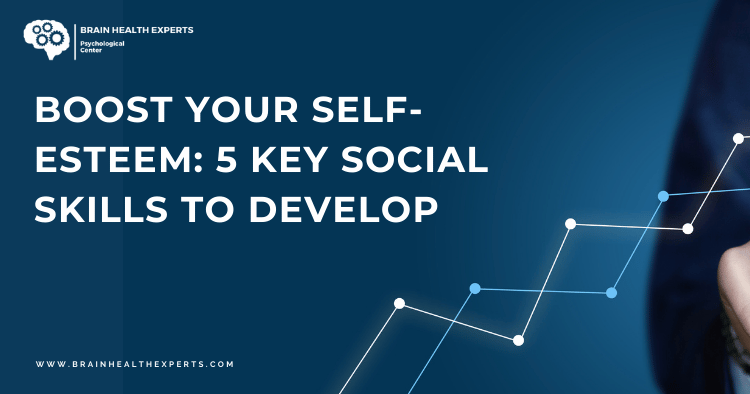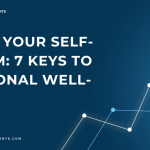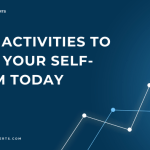Table of Contents
- Introduction
- The Importance of Self-Esteem
- 1. Active Listening
- 2. Effective Communication
- 3. Assertiveness
- 4. Empathy
- 5. Conflict Resolution
- Conclusion
- FAQs
Introduction
Self-esteem plays a crucial role in how we perceive ourselves and interact with others. When we cultivate high self-esteem, we not only feel better about ourselves but also enhance our social skills. This article will guide you through five key social skills that can significantly boost your self-esteem. By developing these skills, you’ll become more confident, improve your relationships, and create a positive social atmosphere around you.
The Importance of Self-Esteem
Self-esteem is essentially how you value yourself and how you believe you are perceived by others. High self-esteem can lead to improved mental health, better relationships, and greater success in various aspects of life. According to research from the American Psychological Association, individuals with higher self-esteem tend to take on challenges more readily, bounce back from failures more quickly, and are generally more resilient.
A strong sense of self-worth can transform the way you engage with the world. So, let’s dive into the five essential social skills that can help you boost your self-esteem!
1. Active Listening
Active listening is more than just hearing words; it involves fully engaging with the speaker. This skill not only shows respect but also helps you understand others better, which can greatly enhance your self-esteem.
Tips to Develop Active Listening:
- Maintain Eye Contact: This shows you are engaged and interested.
- Avoid Interrupting: Let the speaker finish their thoughts before you respond.
- Reflect and Clarify: Paraphrase what you’ve heard to confirm understanding.
Benefits of Active Listening:
- Builds trust in relationships.
- Increases your ability to empathize, leading to deeper connections.
| Benefits of Active Listening | Description |
|---|---|
| Builds Trust | Helps create a safe space for open communication. |
| Enhances Understanding | Fosters better clarity and reduces misunderstandings. |
2. Effective Communication
Effective communication is the cornerstone of any healthy interaction. It involves expressing your thoughts clearly and appropriately while also being receptive to others.
Tips for Effective Communication:
- Be Clear and Concise: Avoid jargon and be straightforward in your messaging.
- Use Positive Body Language: Non-verbal cues are just as important as words.
- Tailor Your Message: Adapt your communication style to your audience.
Benefits of Effective Communication:
- Reduces conflict and misunderstandings.
- Increases your confidence in social situations.
For more insights on enhancing communication skills, check out 10 Tips to Overcome Negative Thought Patterns Today.
3. Assertiveness
Being assertive means expressing your thoughts and feelings openly and honestly while respecting others. This balance is vital for maintaining healthy relationships and boosting self-esteem.
How to Be Assertive:
- Use “I” Statements: For example, say “I feel” instead of “You always”.
- Practice Saying No: It’s okay to decline requests that overwhelm you.
- Stay Calm and Composed: Keep your voice steady and maintain a relaxed posture.
Benefits of Assertiveness:
- Enhances self-respect and respect from others.
- Promotes healthier boundaries in relationships.
Also, explore 5 Ways Positive Thinking Fuels Your Path to Success for more on assertiveness.
4. Empathy
Empathy is the ability to understand and share the feelings of another person. Developing empathy can significantly enhance your social interactions and foster a sense of belonging.
Ways to Cultivate Empathy:
- Put Yourself in Their Shoes: Think about how you would feel in a similar situation.
- Ask Open-Ended Questions: Encourage others to share their feelings and experiences.
- Validate Their Feelings: Acknowledge what others are going through without judgment.
Benefits of Empathy:
- Strengthens relationships by fostering deeper connections.
- Promotes a positive and supportive social environment.
Learn more about how positive thinking can enhance relationships in 10 Ways Positive Thinking Transforms Your Relationships.
5. Conflict Resolution
Conflict is an inevitable part of any relationship, but how we handle it can make all the difference. Developing conflict resolution skills can lead to healthier interactions and a stronger sense of self-worth.
Steps for Effective Conflict Resolution:
- Stay Calm: Take a deep breath before responding.
- Listen to Understand: Make sure you grasp the other person’s perspective.
- Find Common Ground: Look for solutions that satisfy both parties.
Benefits of Conflict Resolution:
- Reduces stress and anxiety in social settings.
- Enhances mutual respect and understanding.
To further improve your conflict resolution strategies, refer to 10 Effective Strategies for Building Resilience in Mental Health.
Conclusion
Boosting your self-esteem is a journey that involves developing essential social skills. By mastering active listening, effective communication, assertiveness, empathy, and conflict resolution, you not only improve your interactions but also enhance your self-worth.
Remember, it’s never too late to start working on these skills. The more you practice, the more confident you’ll become!
FAQs
1. How can I start improving my self-esteem today?
Start by practicing one social skill at a time. Focus on active listening during your next conversation, for instance.
2. Is it possible to improve self-esteem without social skills?
While self-esteem can be nurtured internally, developing social skills provides external validation and support, making it a more holistic approach.
3. How long does it take to see improvements in self-esteem?
The timeline varies for each person. With consistent practice, many notice improvements in weeks to months.
4. Can self-esteem affect my career?
Absolutely! Higher self-esteem can lead to better communication, networking, and overall job performance.
5. Where can I learn more about self-esteem and social skills?
For more in-depth information, check out Verywell Mind and Psychology Today.
By embracing these skills, you’re on your way to not just boosting your self-esteem but also enriching your social life. So, take the plunge and start today!





